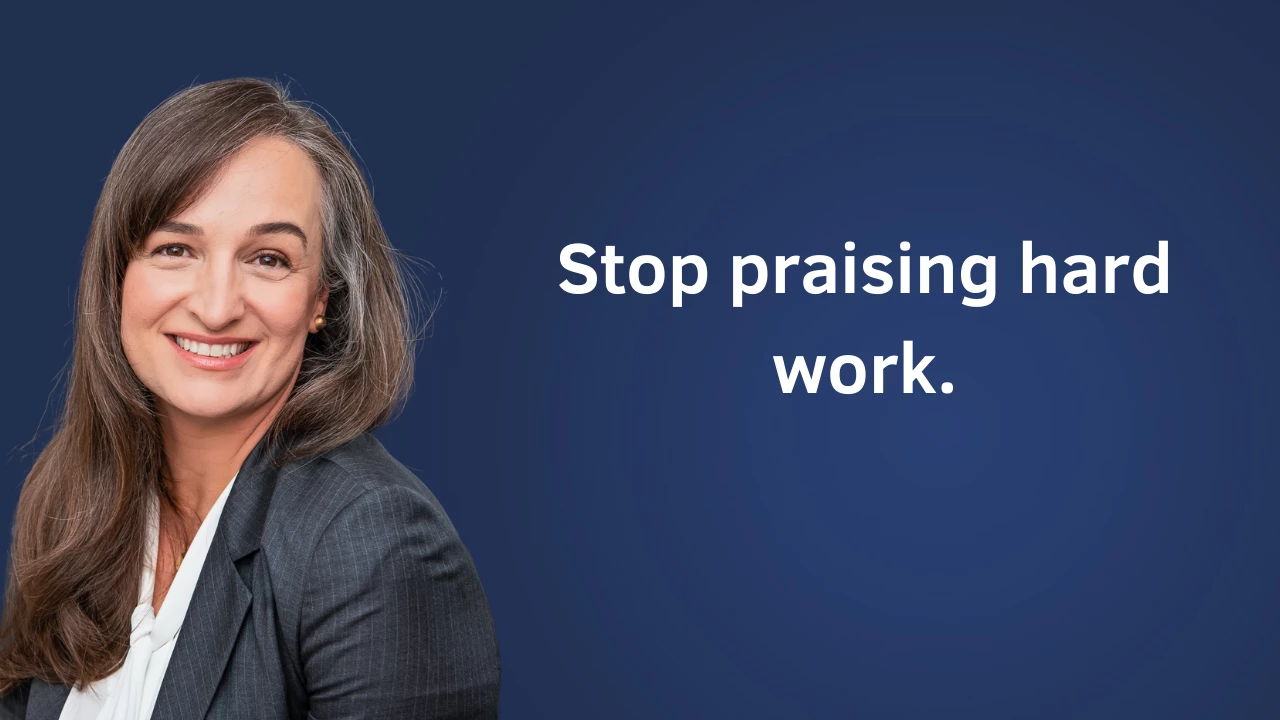Episode 125 - Stop Praising Hard Work: 5 Strategies to Get You Out of the “Rat-Race”

It is now easier than ever before to work harder, for longer hours, every day, from anywhere, and at any time. We check our phones constantly. We answer calls when we are driving, walking, cooking. Keeping up with work is a "rat race" and a real trap. We work so hard, yet we lose focus of our dreams and our values.
It's too easy to stay locked into hard work mode. Hard work is praised in almost every culture. It is also how we introduce ourselves to others. "How have you been?". "Super busy, working a lot, but fine!" It's how we start conversations and know we believe that we add value to the world. It's through hard work.
But is it a solution to your career problems? I don't think it is.
Listen to this episode of The Job Hunting podcast and find out a few of my strategies to get you out of the "rat race" and move forward in your career.
How can you get out of this situation:
Change your mindset: Remember that being busy all the time can be a trap and keep you from achieving your dreams
Carve out time to reset: Find time to implement the following tips.
Create systems and processes: This will help you do the work you are already doing more efficiently.
Get better at delegating: We were designed to work as a team! Make sure you're not adding too much to your plate.
Get better at letting go: Take a break from everything. Resting your mind is vital for your well-being.
Timestamps to guide your listening
Transcript of this episode
About the Host
Hello, I’m Renata Bernarde, the Host of The Job Hunting Podcast. I’m also an executive coach, job hunting expert, and career strategist. I teach professionals (corporate, non-profit, and public) the steps and frameworks to help them find great jobs, change, and advance their careers with confidence and less stress.
If you are an ambitious professional who is keen to develop a robust career plan, if you are looking to find your next job or promotion, or if you want to keep a finger on the pulse of the job market so that when you are ready, and an opportunity arises, you can hit the ground running, then this podcast is for you.
In addition to The Job Hunting Podcast, , on my website, I have developed a range of courses and services for professionals in career or job transition. And, of course, I also coach private clients.
Contact Renata Bernarde
I’m determined to help you! I want you to feel empowered, nail your next job, and have the career you want.
My free resources for job hunters: The Optimized Job Search: Weekly Schedule & Masterclass.
Learn more about my services, courses, and group coaching: RenataBernarde.com
